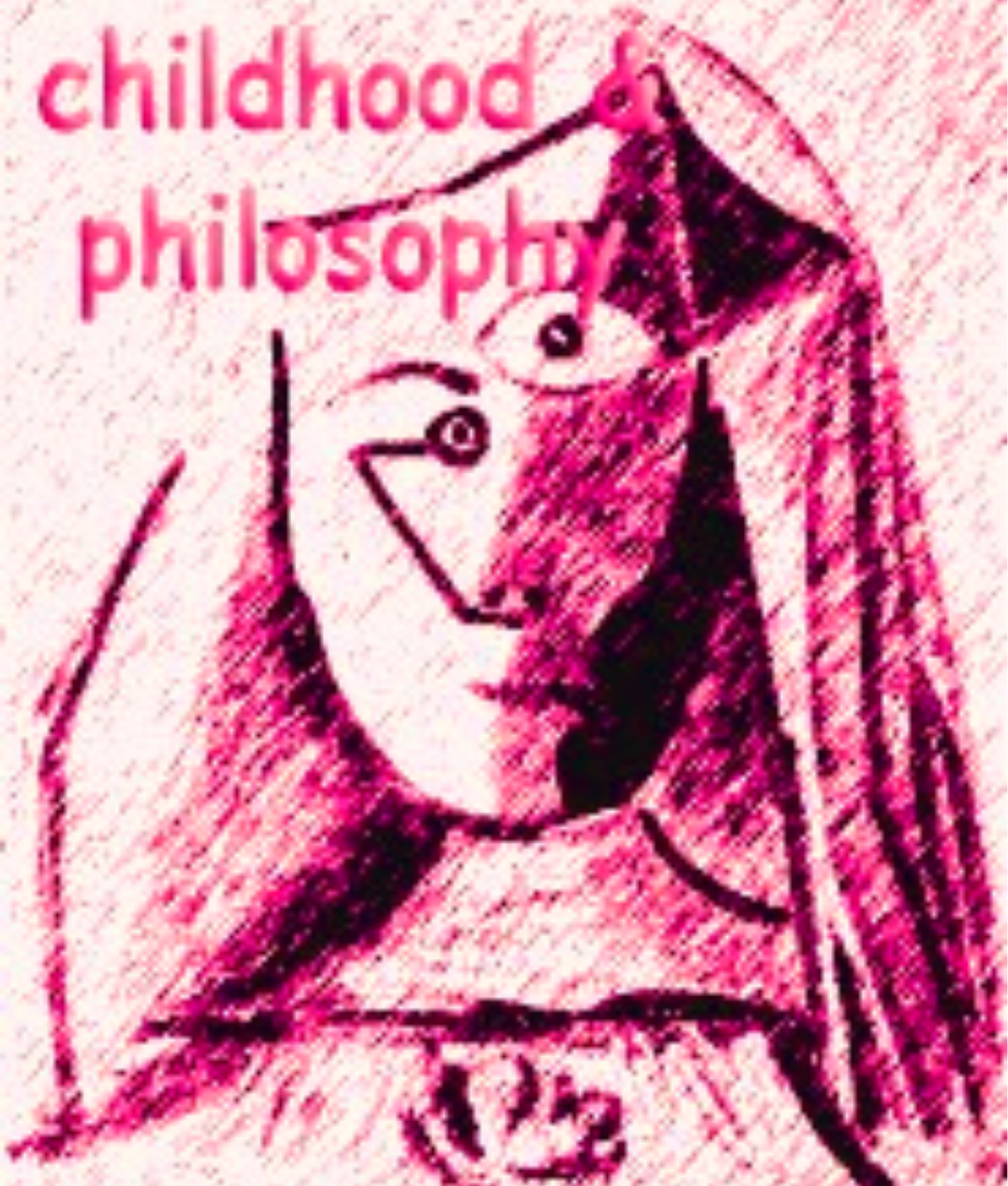filosofia para crianças como forma de educação espiritual
DOI:
https://doi.org/10.12957/childphilo.2022.69865Palavras-chave:
filosofia para crianças, espiritualidade, experiência espiritual.Resumo
Nas últimas duas décadas, alguns autores do movimento de filosofia para crianças têm teorizado que a comunidade de aprendizagem filosófica pode ser uma forma de prática espiritual, de cuidado de si, ou uma prática de sabedoria (De Marzio, 2009;Gregory, 2009, 2013, 2014; Gregory y Laverty, 2009). No entanto, não está claro se a filosofia para crianças é, em si mesma, uma forma de educação espiritual, ou se requer algum tipo de modificação para sê-lo. E, se é ou pode ser uma forma de educação espiritual, podemos nos interrogar de que maneira e em que medida. São estas perguntas as que este texto pretende explorar. Para isso, primeiro esclarecemos o significado de educação espiritual através da apresentação de dois autores que escreveram explicitamente sobre este tema. O primeiro é Parker J. Palmer, quem desenvolveu uma perspectiva sobre o que significa recuperar as raízes espirituais da educação, derivadas de seu estudo e prática da espiritualidade Quaker. O segundo é Pierre Hadot, que explorou como a prática da filosofia na antigüidade ocidental foi uma forma de exercício espiritual. De nossa apresentação destes autores surgirá uma perspectiva particular do que significa a educação espiritual. Na última seção do texto, usaremos esta apresentação para examinar de que maneira a filosofia para crianças pode ser uma forma de educação espiritual e se requer adaptações para sê-lo.
Downloads
Referências
Beaudry, N. (2016). Synthèse sur l'humanisme. In: C. Raby & R. Viola (Eds.), Modèles d'enseignement et théories d'apprentissage : Pour diversifier son enseignement (2 ed., pp. 194-202). Anjou, Québec: Éditions CEC.
Blond-Rzewuski, O., Budex, C., Chirouter, E., Galichet, F., Pettier, J.-C., Sasseville, M., . . . Tozzi, M. (2018). Pourquoi et comment philosopher avec des enfants? Paris: Hattier.
De Marzio, D. (2009). Dialogue, the care of the self and the beginning of philosophy. Thinking: the journal of philosophy for children, 10(4), 10-16.
De Marzio, D. (2011). What happens in philosophical texts: Matthew Lipman’s theory and practice of the philosophical text as model. childhood & philosophy 7(13), 29-47.
Fletcher, N. M., Gregory, M. R., Shea, P., & Sykes, A. (2021). The story circle as a practice of democratic, critical inquiry. childhood & philosophy, 17, 01-42.
Golding, C. (2017). Getting better ideas: A framework for understanding epistemic philosophical progress in Philosophy for children. In M. Gregory, J. Haynes, & K. Murris (Eds.), The Routledge international handbook of Philosophy for Children (pp. 65-73). London: Routledge, Taylor & Francis Group.
Gould, P. D. (2010). 'Creating a space in which the community of truth is practiced': Reflections on dimensions of teaching. Journal of Philosophy and History of Education, 60, 47-51.
Gregory, M. (2008). Philosophy for children: Practitioner handbook. Upper Montclair: Institute for the Advancement of Philosophy for children.
Gregory, M. (2009). Ethics education and the practice of wisdom. Teaching ethics, 9(2), 105-130.
Gregory, M. (2013). Wisdom and other aims for precollege philosophy education. In M. Glina (Ed.), Philosophy For, With, and Of Children. Newcastle: Cambridge Scholars Publishing.
Gregory, M. (2014). Éducation morale et pratique de la sagesse. In M.-P. Grosjean (Ed.), La philosophie au coeur de l'éducation autour de Matthew Lipman (pp. 37-66). Paris: Vrin.
Gregory, M., & Laverty, M. (2009). Philosophy and education for wisdom In A. Kenkmann (Ed.), Teaching philosophy (pp. 155-173). London, New York: Continuum.
Gregory, M., & Oliverio, S. (2018). Philosophy for/with Children, religious education and education for spirituality: Steps toward a review of the literature. In F. Garcia Moriyon & R. Robles (Eds.), Parecidos de familia. Propuestas actuales en Filosofía para Niños / Family ressemblances.Current proposals in Philosophy for children (pp. 279-296). Madrid: Grupo Anaya.
Gregory, M. R. (2007). A framework for facilitating classroom dialogue. Teaching philosophy, 30(1), 59-84.
Gregory, M. R. (2021). Philosophy for children and children's philosophical thinking. In A. Pagès (Ed.), A history of western philosophy: In the contemporary landscape (Vol. 5, pp. 153-177). London: Bloomsburry Academic.
Hadot, P. (1995). Qu'est-ce que la philosophie antique? [Paris]: Gallimard.
Hadot, P. (2002a). Exercises spirituels et philosophie antique. Paris: Albin Michel.
Hadot, P. (2002b). What is ancient philosophy? Cambridge, Mass.: Harvard University Press.
Hadot, P., Carlier, J., & Davidson, A. I. (2001). La philosophie comme manière de vivre. Paris: Le Livre de Poche.
Lipman, M. (2003). Thinking in education. New York: Cambridge University Press.
Matthews, G.B. (2022) Whatever became of the Socratic elenchus? Philosophical analysis in Plato. In M.R. Gregory and M.J. Laverty: Gareth B. Matthews, The Child’s Philosopher, pp. 151-161. New York: Routeldge.
Nussbaum, M. (1985) Philosophical books vs. philosophical dialogue. Thinking: The Journal of Philosophy for Children 6(2):13-14.
Nussbaum, M. (2010) Not for profit: Why democracy needs the humanities. Princeton University Press.
Palmer, P. J. (1993). To know as we are known: Education as a spiritual journey (San Francisco: Harper.
Palmer, P.J. (1999). The grace of great things: Reclaiming the sacred in knowing, teaching, and learning. In Steven Glazer (ed) The heart of learning: Spirituality in education (pp. 15-32) .New York: Jeremy P. Tarcher/Putnam.
Palmer, P. J. (2003). Teaching with heart and soul. Journal of Teacher Education 54(4), 376-385.
Palmer, P. J. (2007). The courage to teach: Exploring the inner landscape of a teacher's life (10th anniversary ed.). San Francisco, CA.: Jossey-Bass.
Rilke, R. M. (1993) Letters to a Young Poet, M. D. Herter Norton (trans.). New York: Norton.
Taylor, C. (1992). Grandeur et misère de la modernité. Montréal: Bellarmin.
Taylor, C., & Gutmann, A. (1994). Multiculturalisme : Différence et démocratie. Paris: Aubier.
Topping, K. J., Trickey, S., & Cleghorn, P. (2019). A teacher's guide to philosophy for children. New York: Routledge, Taylor & Francis Group.
Vienneau, R. (2017). Apprentissage et enseignement : théories et pratiques (3e édition. ed.). Montréal (Québec) Canada: Gaëtan Morin éditeur, Chenelière éducation.
William Aylor, M. (2008). Parker Palmer: Paradox and possibility Journal of Philosophy and History of Education, 58, 1-4.




